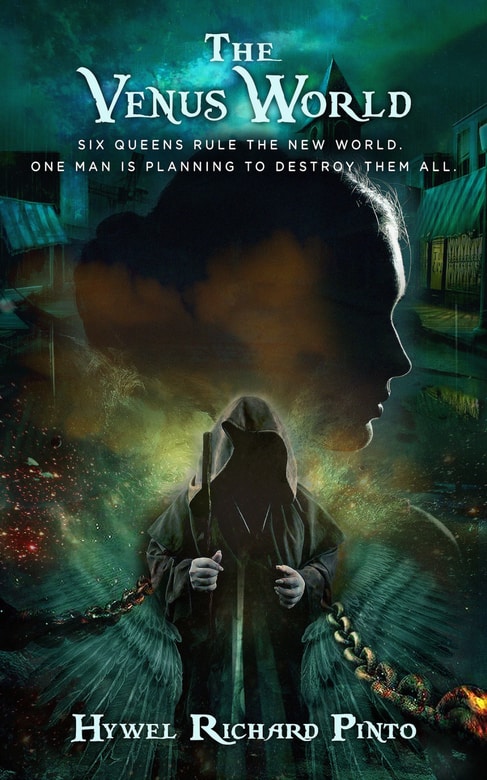A femme-dominated future falls into fracture and peril in The Venus World by Hywel Richard Pinto, a sprawling slice of post-apocalyptic and speculative fiction.
Men are reduced to reproductive necessities after a freak biohazard virus is unleashed on the world, wiping out males across the world in staggering numbers. With their population diminished and their power contained, it seems that the future truly is female, but not all are in agreement about the way forward.
Six queens rule over this new world, and each of their regions has its own supplies and demands, leading inevitably to conflict and decidedly bad blood between these rulers. Ensuring that humanity can continue means allowing some men to survive, but there is understandable concern that rebuilding the male population could spell the downfall of this new paradigm.
Johar is a slave and an unlikely confidante to powerful Queen Rani, but when a rebel group called the Surviving Brothers recruits him, he is faced with a decision that could affect the future of the species – particularly mankind. One of the six global thrones is within his reach, and seizing it could restart the rebalancing of the world, but regaining power without firing a shot requires far more skill, luck, and guts. Navigating the deadly halls of power will be an even bigger challenge, as there is plenty of scheming and back-stabbing in this futuristic vision of humanity.
This entire story is a thought-provoking flip on the patriarchal society that has dominated modern human history, often challenging the idea of implicit differences between the sexes. Early on, examples of brutality and cruelty amongst the female leaders are a harsh reminder that concentrated power is a dangerous weapon in any hand. While the premise is gripping, some of the depictions of the key characters, especially the quick-to-rage Queen Polime and the slightly stereotyped Queen Rani, are two-dimensional and predictable, seeming more like pawns in the story than fully-developed characters.
The quality and creativity of the writing is also an issue – specifically, the dialogue is stilted and unnatural throughout the majority of the book, with conversations having a nearly robotic feel. As a result, there is little excitement generated during character exchanges, and the pace tends to drag, making it difficult to immerse in the story. Many of the story developments are far too convenient as well, such as the plot-initiating plane crash that happens to occur mere kilometers from the queen of the realm’s location, and exposition and world-building is conducted in a clumsy and semi-transparent manner, seemingly forced in, rather than organically introduced. Finally, the prose is rife with grammatical and spelling errors, awkward syntax, improperly used words, and other mistakes that are persistent throughout.
This novel has incredible potential in its characters, plot arc, and thematic explorations, but these glaring stumbles make it hard to fully engage. Pinto would do well to overhaul this book with a thorough and generous edit, or readers might never make it through this incisive and mind-expanding tale.
Book Links
STAR RATING
Design
Content
Editing
Get an Editorial Review | Get Amazon Sales & Reviews | Get Edited | Get Beta Readers | Enter the SPR Book Awards | Other Marketing Services
























Leave A Comment